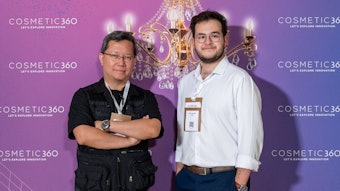
Editor's note: Our "Words from Wiechers" series considers the lessons our industry can learn from the late Johann Wiechers, Ph.D. He was an advisor, colleague and insightful leader in the industry until his unexpected passing. Presenting Wiechers's insights is Tony O'Lenick.
This month, we review Chapter 29 of Wiechers's book, Memories of a Cosmetically Disturbed Mind. Here, he toys with our imaginations over the dynamics of pricing that occur between buyers and suppliers in an illustrative "100-Euro challenge." O'Lenick proposes a different perspective in light of market realities.
100-Euro Challenge
Johann challenges us: “Imagine this. There are 100 Euros on the table and there are two people. You are one of them. One of you will be making a proposal as to how this sum of money will be divided, and the other person will be the acceptor. The toss of a coin will decide whether you are the proposer or the acceptor. If the acceptor agrees to the proposal made by the proposer, then both proposer and acceptor will get the proposed share of the 100 Euros. But if the proposer does not accept the proposal, then none of you gets anything.
"There are no negotiations but both the proposer and acceptor know the total amount of money involved. You do not know each other and you will never meet again. So far, those are the rules. Now, for the money...but before you continue to read on, answer me the following questions. Actually, write them down, as you will be amazed about yourself.
"Question 1: Would you rather be the proposer or the acceptor? Question 2: If you were the proposer, which split of the 100 Euros would you propose? And once you have written down the answer to this question, answer Question 3: What minimum amount of Euros you would still accept as the acceptor?”
"Whilst you are wondering what this has to do with cosmetic science, let me tell you that you would rather be the proposer than the acceptor. At least 90% of people opt for being the proposer. In this way, you can control things and we like to be in control, especially when money is involved. If you are indeed the proposer, there is a high probability that you would go for a fair split, somewhere between 50/50 to 60/40. The average score for typical Western-type civilizations is 45% to be given to the other party. Why? Because most people have a built-in mechanism of fairness; it is one of the characteristics of what theoretical economists call Homo emoticus.
At least 90% of people opt for being the proposer. In this way, you can control things and we like to be in control, especially when money is involved.
"If you were the acceptor, I bet that you would accept a lot less than the 45%, maybe as little as 20%. Was I right or not? But if there would be a proposed 90/10 split, would you rather prefer nothing to getting 10 Euros? Why would you punish yourself? After all, you will never see the proposer again! These are typical statements that the Homo economicus would make to justify his or her 90/10 split. This person, a rational individual relentlessly bent on maximizing a purely selfish reward, is another postulation of theoretical economists. By now, you should know whether you are a Homo emoticus or a Homo economicus—I hope you are not disappointed!
But now the cosmetic variant of the Ultimate Game as the scenario described above is called in experimental economics. Imagine you are a supplier of cosmetic ingredients and your latest innovation is an exceptional one. You go to your customers and offer your product at a given price. Who is the proposer? Clearly, you as the supplier as you are bringing something new to the table from which all could benefit. And therefore, the customer must be the acceptor. (S)he can accept or reject your offer, albeit that this offer came about after various rounds of negotiations. So far, everything is good, you are the proposer and you make a fair proposal, if you as the supplier are the Homo emoticus, like most of us are.
Enter: Exclusivity Variable
"Then, all of a sudden and just when you are about to finalize the deal, you hear the word 'exclusivity' mentioned. In doing so, your partner in the negotiations is changing the game dramatically. First of all, as the proposer, you know that you are in a winning situation as you have something good to offer. Why would the acceptor ask for exclusivity if (s)he did not think the product was excellent? A 50/50 split is no longer justified or fair. An 80/20 split might now be justified and you’re gradually changing to being a Homo economicus. But are you really? By asking for ‘exclusivity,’ the acceptor is trying to reverse the roles. Your customer is trying to become the proposer, and there is nothing left for you as the supplier but to sit and wait and accept(!) or decline.
"Yes, you might obtain a higher price for the innovation than you would get otherwise, but how much influence have you left on the volume of sales and degree of exposure? You are no longer in the driver's seat and you simply will have to accept what your customer is doing with the innovation, be it a lot or nothing at all. Are you still the one that is winning here, even with an 80/20 split? And listen, now (s)he is saying that 80 is a bit over the top. Where is the fairness gone?
The deal isn’t done until all material aspects of the deal are agreed upon by both parties. Continue the discussions.
"In experimental economics, people have been puzzled as to why humans have this in-built mechanism of fairness as players of the Ultimate Game are often more generous than predicted by game-theory analysis, which assumes that people selfishly seek to maximize their personal gains. But unfair play often provokes costly acts of revenge and as a consequence, we behave more fairly than predicted.
"Humans could have evolved this feeling for fairness during the millions of years that we lived in small groups. Such emotions prompted us to behave in ways that would have benefited either our group or us in the long run. Asking for ‘exclusivity’ in the cosmetic context is a move toward Homo economicus, a situation that does not benefit the group; i.e., the cosmetic industry, in the long run."
O'Lenick Grounds the Game in Reality
The scenario proposed by Wiechers is interesting, and in general I agree with the pretext that 90% of people opt for being the proposer and that the proposer has a high probability of you proposing a fair split; somewhere between 50/50 to 60/40. There are some aspects of this, however, and one very significant factor in particular that makes the game different from a direct comparison to the pricing of raw materials in our industry.
Firstly, the game proposes 100 Euros on the table. In the world of product development, someone provided the product that has the value of 100 Euro, it did not just appear. That contribution will have an impact on the "split." Often, there is a joint development that occurs and this would certainly affect the split and the concept of exclusivity.
Exclusivity is one additional aspect of a deal that needs to be considered as part of the entire program. I do not see why, even after a decision on a split is made, discussions cannot be reopened when a new topic like exclusivity is added. The deal isn’t done until all material aspects of the deal are agreed upon by both parties. Continue the discussions.
Secondly, the market has a large impact on both the number of Euros and the “fair division” of them. Raw material manufacturers have different costs, margins and anticipations than do the finished manufacturers. To assume 50/50 is the proper split may not be correct.
Thirdly, the game disregards the reality of a market. Neither manufacturer nor raw material supplier works outside the constraints of the market. The cost and availability of the same material from different suppliers and/or different raw materials that will be functional replacements minimizes the latitude of the "game."
Finally, the assumption that neither party sees the other again is not realistic. There is a real need to be fair with each other because we will see each other again.










